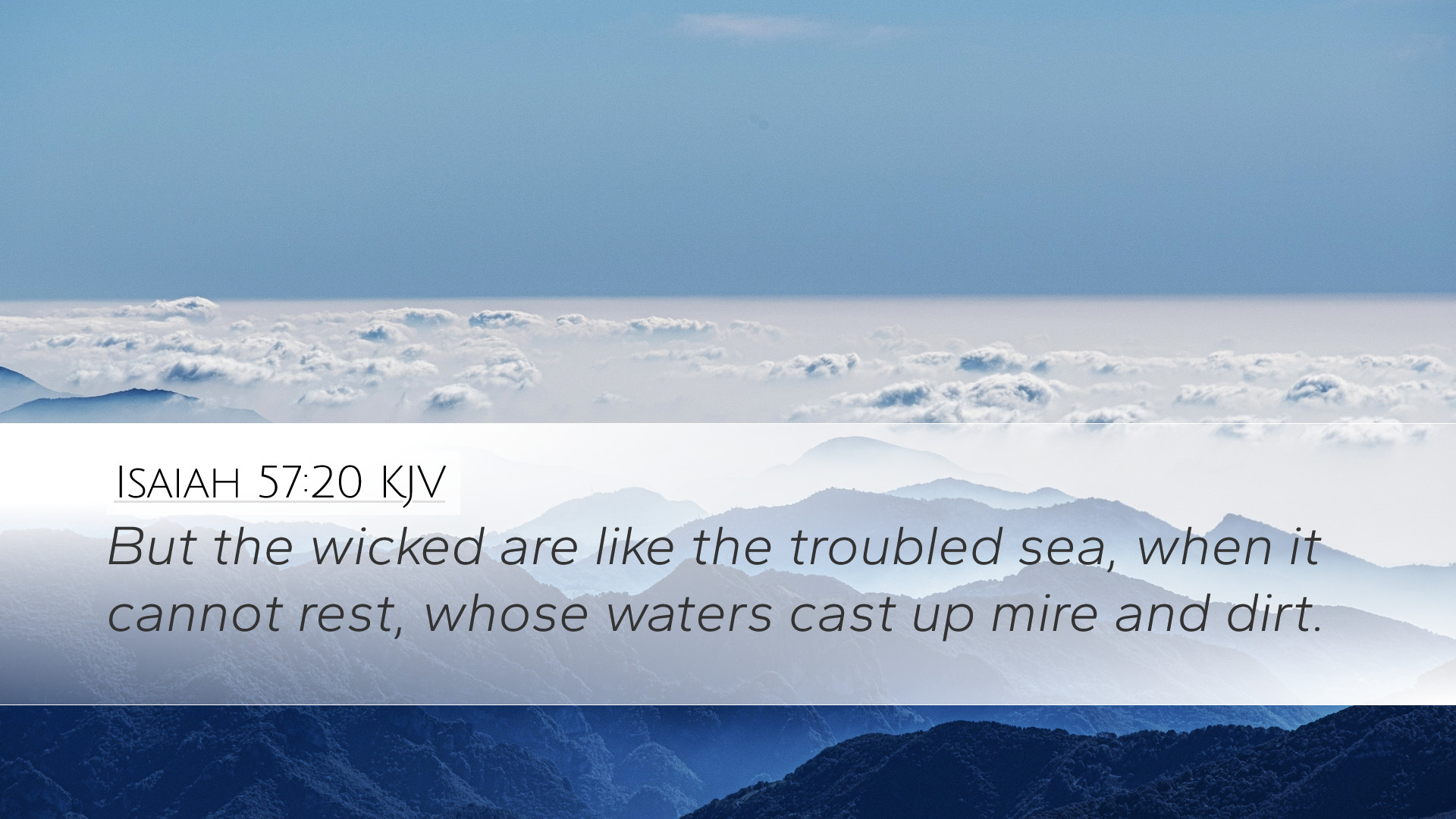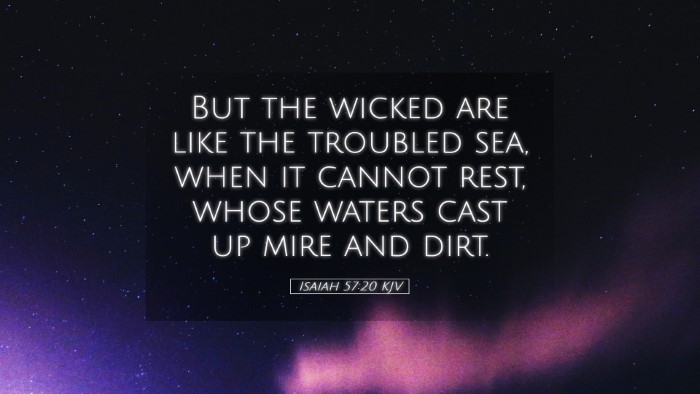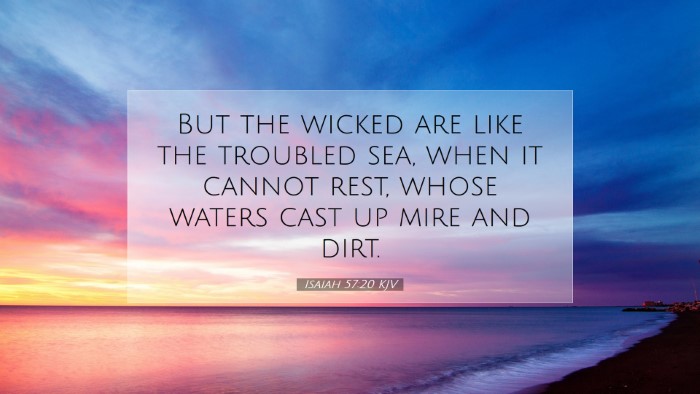Commentary on Isaiah 57:20
Verse: "But the wicked are like the troubled sea, when it cannot rest, whose waters cast up mire and dirt."
Introduction
In Isaiah 57:20, the prophet draws a vivid analogy comparing the wicked to the restless sea. This verse encapsulates the turmoil and instability associated with a life apart from God. By examining historical and theological insights from prominent public domain commentaries, we can glean deeper understanding of the spiritual implications of this metaphor.
Understanding the Metaphor
The imagery of the sea in biblical literature often signifies chaos and unrest, which aligns with the nature of the wicked. Matthew Henry notes that the "troubled sea" is a fitting representation of the restless heart of those who live in rebellion against God. The turbulent waters symbolize not only emotional instability but also moral corruption.
The Nature of Wickedness
-
Barnes' Insight: Albert Barnes emphasizes that wickedness results in a life devoid of peace. The restless sea, which cannot rest, reflects the inner turmoil of the wicked who are constantly tossed by their sins and vices.
-
Clarke’s Commentary: Adam Clarke further elaborates by suggesting that the wicked are never satisfied. Each attempt to find peace leads only to greater unrest, much like the sea that continually churns and casts up filth.
The Restless Heart
The parallel between the relentless sea and the heart of the wicked highlights a profound truth: true peace cannot be found apart from God. This reflects the teachings of Augustine, who famously said, "Thou hast made us for thyself, O Lord, and our heart is restless until it finds its rest in thee."
The Consequences of Wickedness
-
Moral Decay: The "mire and dirt" that the sea casts up signifies the moral decay we see in a life separated from God. The more one lives in sin, the more filth accumulates, mirroring the spiritual state of a person engaging in wickedness, as highlighted by Henry.
-
Discontentment: As Barnes points out, the consequences of wickedness lead to profound discontentment. The wicked are akin to the sea that cannot find rest, perpetuating a cycle of sin and restlessness.
Theological Reflections
This verse serves as a reminder of the dichotomy between the wicked and the redeemed. While the wicked are consumed by turmoil, the righteous can claim the peace of God that surpasses all understanding. The imagery invites pastors, theologians, and students of the Word to reflect on the nature of peace found in a relationship with God.
The Call to Holiness
Isaiah 57:20 ultimately calls the faithful to pursue holiness and to recognize the futility of trying to find rest in worldly pleasures. As Clarke notes, the invitation is clear: reject the ways of the wicked and strive for a life marked by peace through righteousness.
Practical Applications
-
Personal Reflection: Believers should regularly assess their lives in light of this verse. Are there areas that resemble the troubled sea? How can one seek the peace of God more intentionally?
-
Pastoral Counsel: Pastors are encouraged to use this imagery to address congregational struggles with sin, emphasizing the importance of seeking God for true restoration rather than the temporary relief offered by the world.
-
Teaching Opportunities: In study groups or sermons, Isaiah 57:20 can serve as a springboard for discussing the nature of wickedness and the hope of redemption, reinforcing the necessity of a living faith.
Conclusion
Isaiah 57:20 stands as a powerful reminder of the dire consequences that arise from a life steeped in wickedness. The metaphor of the troubled sea poignantly captures the essence of spiritual unrest. Through the insights of revered commentators like Matthew Henry, Albert Barnes, and Adam Clarke, we are reminded of the necessity for righteousness, the futility of sin, and the promise of true peace found only in Christ. In forming our lives around the teachings of this verse, we not only find rest for our souls but also reflect the glory of God in a restless world.


